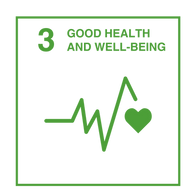Technical assistance for oil spillover assessment and response planning in North East Syria
The NICOLE Foundation is providing technical expertise to help map, assess and respond to widespread oil spillovers affecting water and agricultural land in Northeast Syria.

Project snapshot
Region: North East Syria
Start date: December 2024
Duration: 1 year (ongoing)
Partners: Whole of Syria WASH Cluster
Funding partner: Dutch Disaster Risk Reduction and Surge Support (DRRS)
The NICOLE Foundation is providing technical expertise to help map, assess and respond to widespread oil spillovers affecting water and agricultural land in Northeast Syria.
Why this work matters
Northeast Syria faces severe challenges in water supply and environmental health. Following recent hostilities, 83% of assessed water supply systems are non-functional due to damaged power infrastructure. The shutdown of the Alouk water station alone has left more than 610,000 people without reliable access to safe water, while over 1.8 million people across the region require urgent support.
Compounding this, oil leaks have been observed in rivers and agricultural lands since 2014, caused by poor waste management and pipeline failures. Events such as the 2020 pipeline explosion and the 2024 leaks in Al-Hasakeh governorate have left rivers, farmland and even refugee camp surroundings contaminated. This pollution potentially poses long-term risks to human health, ecosystems and livelihoods.
Our approach
Planned activities
Develop a methodology to rapidly distinguish major impacts from low-risk or minor ones, including exposure scenarios and conceptual site models.
Train local teams to map impacts, both with and without laboratory analysis.
Create a sampling plan to address data gaps and verify conceptual site models.
Propose immediate high-risk responses for blatant exposure issues, within local restrictions.
Support technical coordination and participate in relevant cluster meetings.
Review and support public awareness messages to ensure technical accuracy.
Provide technical inputs for ongoing advocacy and resource mobilisation led by the WASH Cluster.
Technical methodologies
Application of Risk-Based Corrective Action (RBCA) framework.
Tier 1 assessment steps:
Collect relevant site data and train field teams in safe observation methods.
Develop conceptual site models in collaboration with local teams.
Select relevant exposure scenarios for screening.
Identify data collection needs for subsequent phases.
Expected outcomes and benefits
Initial mapping of oil spread and identification of most affected and potentially at-risk areas.
Development of technical guidance and context-adapted standard operating procedures (SOPs) for corrective and mitigation measures.
Strengthened capacity of local partners to implement required response actions.
Improved monitoring and coordination across sectors through WASH Cluster platforms.
Benefits for local communities through environmental health improvements, protection of agricultural land, and biodiversity conservation.
Anticipated challenges
Capacity building and language barriers.
Restricted site access due to regional security concerns.
Limitations in humanitarian funding.
A shifting political situation affecting response activities.
Call to collaborate
The NICOLE Foundation welcomes collaboration with partners and funders to advance this work – supporting technical expertise, funding, and advocacy to reduce the risks of oil contamination in Syria.
Supported Sustainability Development Goals (SDGs)




















